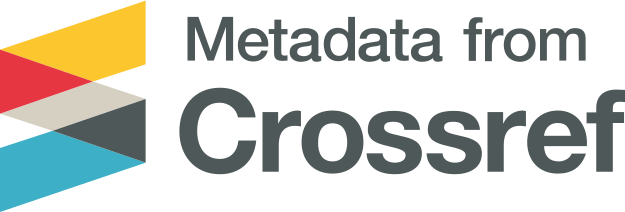Mekanisme Pencegahan Fraud dalam Peningkatan Kinerja Organisasi
Abstract views: 501 | PDF downloads: 409
Abstract
This research was conducted as an effort to explore the determinants of company performance by considering the variables of the whistleblowing system, organizational commitment and fraud prevention. More specifically, researchers tested the direct influence of the whistleblowing system and organizational commitment on fraud prevention. Researchers also looked at the influence of fraud prevention on company performance. Then, researchers looked at the mediating role of fraud prevention. This research was conducted at health service providers in the city of Tasikmalaya, which includes hospitals and health centers, with a total sample of 70 institutions. This research data was distributed through a survey system, then processed using Structural Equation Modeling using Partial Least Square (SEM-PLS). The results of this research show that the whistleblowing system and organizational commitment have a positive effect on fraud prevention, while fraud prevention has a positive effect on company performance. Finally, researchers confirm the mediating role of fraud prevention in the influence of the whistleblowing system and organizational commitment on company performance.
References
Afiah, N. N., Syatyakti, Y., Alfian, A., & Sueb, M. (2019). Fraud prevention capability and organizational culture: A case study of government agencies. Opción: Revista de Ciencias Humanas y Sociales, (21), 996-1011.
Alzeban, A. (2020). The relationship between the audit committee, internal audit and firm performance. Journal of Applied Accounting Research, 21(3), 437–454. https://doi.org/10.1108/JAAR-03-2019-0054.
Anggraeni, N. M., Sailawati, S., & Malini, N. E. L. (2021). Pengaruh Whistleblowing System, Sistem Pengendalian Internal, Budaya Organisasi, dan Keadilan Organisasi Terhadap Pencegahan Kecurangan. Jurnal Akuntansi Keuangan dan Bisnis, 14(1), 85-92.
Amyulianthy, R., Astuti, T., Wahyudi, A., Harnovinsah, Sopanah, A., & Sulistyan, R. B. (2023). Diamond Fraud Determinants: An Implementation of Indonesia’s Wisdom Value. International Journal of Professional Business Review, 8(8), e02938. https://doi.org/10.26668/businessreview/2023.v8i8.2938
Astuty, K. (2022). The Effect of Organizational Commitment, Moral Leadership, Work Environment, Religiusity and Love of Money Towards Fraud Intention. Jurnal Ekonomi, Manajemen, Akuntansi Dan Keuangan, 3(1), 243-256. https://doi.org/10.53697/emak.v3i1.421.
Anandya, C. R., & Werastuti, D. N. S. (2020). Pengaruh Whistleblowing System, Budaya Organisasi dan Moralitas Individu Terhadap Pencegahan Fraud pada PT. Pelabuhan Indonesia III (Persero) Benoa Bali. Jurnal Ilmiah Akuntansi Dan Humanika, 10(2), 185. https://doi.org/10.23887/jiah.v10i2.25933.
Baten, A. M. (2018). Beyond the fraud triangle; why people engage in pecuniary crimes? Introduction. International Journal of Advanced Research, 6(1), 2320-5407.
Bunga, R. A., Rafael, S., Dethan, M., & Arthana, K. (2020). Whistleblowing systems and competence of internal auditor for fraud prevention. International Journal of Scientific and Technology Research, 9(2), 3171-3175.
Babulu, N. L. (2020). Faktor-faktor yang mempengaruhi akuntabilitas dalam pengelolaan dana desa dan dampaknya terhadap pencegahan fraud. Ekopem: Jurnal Ekonomi Pembangunan, 2(2), 18-26.
Chwolka, A., & Oelrich, S. (2020). Whistleblowing as a means for the prevention and detection of fraud in Germany-amidst heroes and informers. Betriebswirtschaftliche Forschung und Praxis, 72(4).
Dajani, D., & Zaki, M. A. (2015). The Impact of Employee Engagement on Job Performance and Organisational Commitment in the Egyptian Banking Sector. Journal of Business and Management Sciences, 3(5), 138–147. https://doi.org/10.12691/jbms-3-5-1
Dhaliwal, S., Farrar, J., & Hausserman, C. (2022). Rewards and Fear of Being Labelled as Racist: A Tax Fraud Whistleblowing Investigation. Accounting Perspectives. https://doi.org/10.1111/1911-3838.12296.
Febriani, F., & Suryandari, D. (2019). Analisis Faktor-Faktor Yang Berpengaruh Terhadap Kecenderungan Kecurangan (Fraud): Persepsi Pegawai Pada Dinas Kota Tegal. Jurnal Akuntansi, 9(1), 33–46.
Fitriyah, F. K., & Adrianto, Z. (2018). The internal audit role in fraud detection and prevention. International Journal of Innovation, Creativity and Change, 11(8), 491–499.
Gomes, F. O., Agostinho, B. M., & Martina, J. E. (2020, November). Fraud prevention within the Brazilian governmental public-key infrastructure. In 2020 IEEE International Conference on Intelligence and Security Informatics (ISI) (pp. 1-6). IEEE. https://doi.org/10.1109/ISI49825.2020.9280480.
Hadi, M., Ariyanti, R., & Notoatmojo, M. I. (2021). Pengaruh Pengendalian Internal dan Komitmen Organisasi dalam Pencegahan Fraud Pengadaan Barang (Studi Kasus pada RSUD Bendan Kota Pekalongan). Jurnal Aktual Akuntansi Keuangan Bisnis Terapan (AKUNBISNIS), 4(1), 21-28.
Hayati, N., & Wulanditya, P. (2018). Attitudes towards Whistleblowers, Organizational Commitment, Ethical Climate Principles, and Self-Efficacy as Determinants of Fraud Disclosures. The Indonesian Accounting Review, 8(1), 25-35.
Hayatunnupus, I. L., & Mandasari, J. (2020). Pengaruh Kesesuaian Kompensasi,Penegakan Hukum dan Komitmen Organisasi Terhadap Fraud Pada Pemerintah Desa. Jafa (Journal of Accounting, Finance, and Auditing), 2(2), 49-57.
Helmayunita, N. (2018, July). The Influence of Personal Cost of Reporting, Organizational Commitment, Fraud Seriousnesss Level, and Gender on Whistle-blowing Intentions. In First Padang International Conference On Economics Education, Economics, Business and Management, Accounting and Entrepreneurship (PICEEBA 2018) (pp. 598-605). Atlantis Press. https://doi.org/10.2991/piceeba-18.2018.77.
Heese, J., Krishnan, R., & Ramasubramanian, H. (2021). The Department of Justice as a gatekeeper in whistleblower-initiated corporate fraud enforcement: Drivers and consequences. Journal of Accounting and Economics, 71(1), 101357.
Islahuzzaman. (2019). Effect of audit committee, internal control, organization commitment, whistleblowing system, on fraud actions: Good corporate governance and fraud triangle as intervening. Journal of Advanced Research in Dynamical and Control Systems, 11(3), 852–867.
Indriani, M., Yulia, A., Nadirsyah, N., & Ariska, L. P. (2019). Whistleblowing Intention, Personal Cost, Organizational Commitment and Fraud Seriousness Level. Journal of Accounting and Investment, 20(2). https://doi.org/10.18196/jai.2002121.
Kang, M. M. (2022). Whistleblowing in the Public Sector: A Systematic Literature Review. Review of Public Personnel Administration, 0734371X221078784. https://doi.org/10.1177/0734371X221078784.
Leatemia, S. Y., & Febryanti, N. F. (2020). Pengaruh Pengendalian Internal Dan Komitmen Organisasi Terhadap Pencegahan Fraud Pengadaan Barang (Studi Empiris pada Rumah Sakit Pemerintah di Kota Ambon). ARIKA, 14(1), 15-22. https://doi.org/10.30598/arika.2020.14.1.15.
Mandolang, F., Ôcì, C., & Ôcì, S. (2019). Pengaruh Pengendalian Internal, Komitmen Organisasi, dan Moralitas Individu terhadap Pencegahan Kecurangan (Fraud) Provider Jaminan Kesehatan Nasional (Studi: Pemberi Pelayanan Kesehatan RSU Mohammad Noer Pamekasan). MAP (Jurnal Manajemen dan Administrasi Publik), 2(04), 459-471.
Manurung, D., Suhartadi, A. R., & Saefudin, N. (2015). The influence of organizational commitment on employee fraud with effectiveness of internal control and organizational justice as a moderating variable. Procedia-Social and Behavioral Sciences, 211, 1064-1072. https://doi.org/10.1016/j.sbspro.2015.11.142.
Nurlaela, E., Mappanyukki, R., & Surjandari, D. A. (2021). The Effect of the Internal Audit Roles and Auditor Professionalism on Fraud Prevention. Studies in Media and Communication, 9(2), 24-35. https://doi.org/10.11114/smc.v9i2.5324.
Nursiani, N. P., & Fanggidae, R. (2019). Fraud Prevention: Relevance to spirituality workplace and religion. Opción: Revista de Ciencias Humanas y Sociales, (35), 28.
Okafor, O. N., Adebisi, F. A., Opara, M., & Okafor, C. B. (2020a). Deployment of whistleblowing as an accountability mechanism to curb corruption and fraud in a developing democracy. Accounting, Auditing and Accountability Journal, 33(6), 1335-1366. https://doi.org/10.1108/AAAJ-12-2018-3780.
Okafor, O. N., Opara, M., & Adebisi, F. (2020b). Whistleblowing and the fight against corruption and fraud in Nigeria: perceptions of anti-corruption agents (ACAs). Crime, Law and Social Change, 73(2), 115-132. https://doi.org/10.1007/s10611-019-09855-4.
Perawati, K. M., & Badera, I. D. N. (2018). Pengaruh Gaya Kepemimpinan Transformasional, Budaya Organisasi dan Komitmen Organisasi pada Kinerja Organisasi. E-Jurnal Akuntansi, 25(3), 1856. https://doi.org/10.24843/eja.2018.v25.i03.p09.
Rohimah, I., & Anna, Y. D. (2019). Faktor-Faktor Yang Mempengaruhi Pencegahan Fraud. Jurnal Riset Akuntansi Dan Perbankan, 13(1), 67-76.
Rusdianti, I. S., Irmadariyani, R., & Kustono, A. S. (2022). E-Finance : Mitigation of Fraud Tendency in Indonesia. International Journal of Entrepreneurship and Business Development, 5(2), 574-582. https://doi.org/10.29138/ijebd.v5i3.1857
Septiawan, B. (2018). Pengaruh Pelaksanaan Audit Internal dan Komitmen Organisasi Terhadap Good Corporate Governance (Survey Pada 3 BUMN yang Berkantor Pusat di Kota Bandung). Seminar Nasional I Universitas Pamulang, 1-9.
Shonhadji, N., & Maulidi, A. (2021). The roles of whistleblowing system and fraud awareness as financial statement fraud deterrent. International Journal of Ethics and Systems, 37(3), 370-389. https://doi.org/10.1108/IJOES-09-2020-0140.
Suarniti, N. L. P. E., & Sari, M. M. R. (2020). Pengaruh Moralitas Individu, Komitmen Organisasi Dan Kesesuaian Kompensasi Pada Kecurangan Akuntansi. E-Jurnal Akuntansi, 30(2), 319-333. https://doi.org/10.24843/eja.2020.v30.i02.p04.
Sulistiyanti, R., Rahmah, S., & Arizah, A. (2021). Pengaruh Pengendalian Internal, Komitmen Organisasi dan Perilaku Etis Karyawan Terhadap Pencegahan Fraud Pada PT Bank Rakyat Indonesia. YUME: Journal of Management, 4(3), 39-47.
Surbhi, S., & Kumar, S. (2019, September). Fraud detection during money transaction and prevention. In 2019 International Conference on Issues and Challenges in Intelligent Computing Techniques (ICICT) (Vol. 1, pp. 1-4). IEEE. https://doi.org/10.1109/ICICT46931.2019.8977668.
Tahawa, T. H. B., Nurhidayah, N., Tanra, A. A. M., & Khaldun, R. I. (2020). Fraud trend in the regional government of Central Sulawesi province. The Indonesian Accounting Review, 10(1), 51-58. https://doi.org/10.14414/tiar.v10i1.1850.
Triantoro, H. D., Utami, I., & Joseph, C. (2020). Whistleblowing system, Machiavellian personality, fraud intention: An experimental study. Journal of Financial Crime, 27(1), 202-216. https://doi.org/10.1108/JFC-01-2019-0003.
Utami, L. (2018). Pengaruh Audit Internal Dan Whistleblowing System Terhadap Pengungkapan Kasus Kecurangan Perusahaan Sektor Jasa Di Bursa Efek Indonesia. Jurnal Studi Akuntansi Dan Keuangan, 1(2), 77–90.
Wahyudi, S., Achmad, T., & Pamungkas, I. D. (2022). Prevention Village Fund Fraud in Indonesia: Moral Sensitivity as a Moderating Variable. Economies, 10(1), 26. https://doi.org/10.3390/economies10010026.
Wijayaa, S., & Asfiroyanb, M. (2020). Whistleblowing on Tax Fraud-The Role of Monetary Incentives and Social Discrimination. Systematic Reviews in Pharmacy, 11(11), 335-345. https://doi.org/10.31838/srp.2020.11.49
Copyright (c) 2023 Mochamad Rizqi Gunawan, Rima Rachmawati

This work is licensed under a Creative Commons Attribution-ShareAlike 4.0 International License.
Authors who publish with this journal agree to the following terms:
- Authors retain copyright and grant the journal right of first publication with the work simultaneously licensed under a Creative Commons Attribution-ShareAlike 4.0 International License that allows others to share the work with an acknowledgement of the works authorship and initial publication in this journal.
- Authors are able to enter into separate, additional contractual arrangements for the non-exclusive distribution of the journals published version of the work (e.g., post it to an institutional repository or publish it in a book), with an acknowledgement of its initial publication in this journal.
- Authors are permitted and encouraged to post their work online (e.g., in institutional repositories or on their website) prior to and during the submission process, as it can lead to productive exchanges, as well as earlier and greater citation of published work (See The Effect of Open Access).














